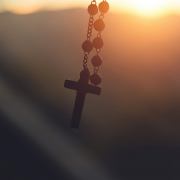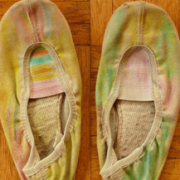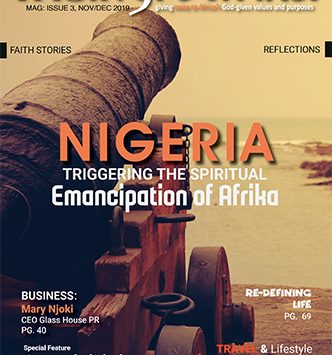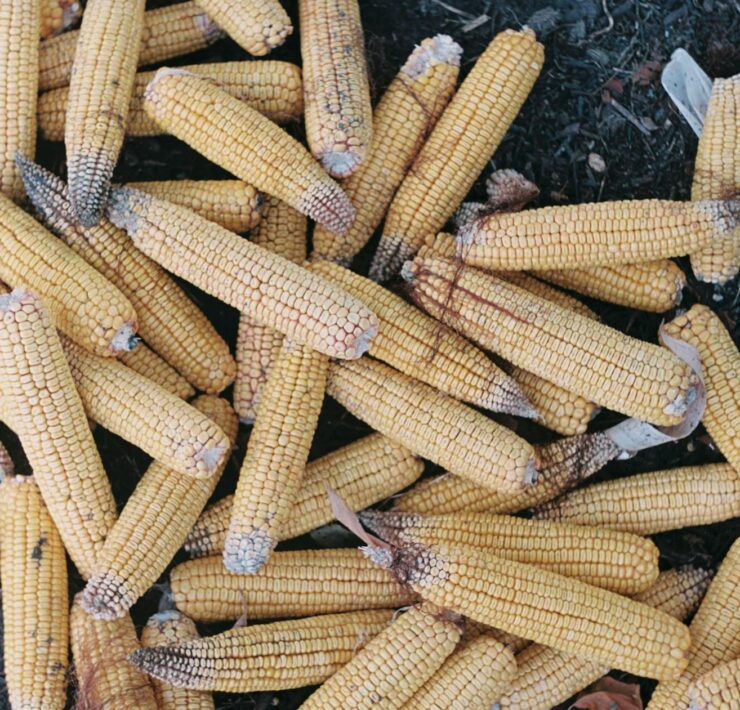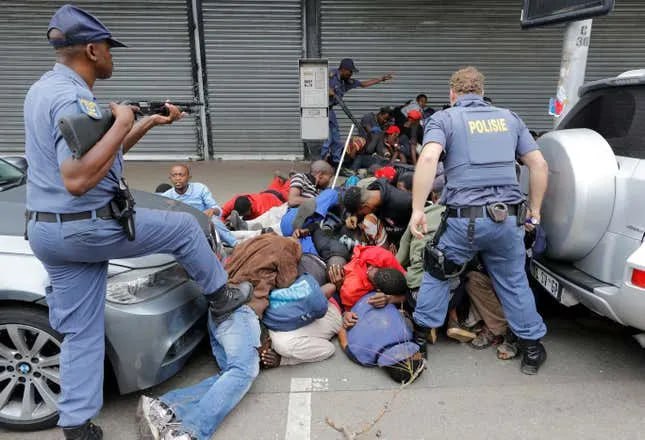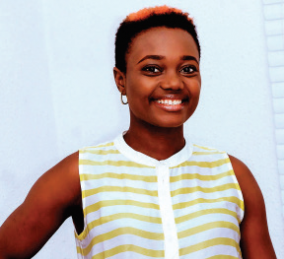
Passionate about getting God's message concerning Afrika and the end…
Read Next
COMFORT ONYAGA: EXECUTIVE DIRECTOR, CLICE, NIGERIA
Comfort Onyaga is on a journey of Walking Love, to change the narrative of Africa and lift her out of a place of dependency to one of victory. From her experience in working with locals in fishing communities in the riverine areas of the Niger Delta in Nigeria, she gives important tips on how Africa can be self-sustaining, rather than depending on aid.
Please tell Afrika a little bit about who you are and your background.
My name is Comfort Onyaga. Onyaga means the supreme woman. It speaks of the supremacy of the female expression.
I studied Political Science partly because I didn’t want to join the bandwagon of Law that everybody else was on, partly because it wasn’t popular for women to do it and mostly because I wanted to be responsible for whatever decision I take, so that I can be responsible for my success or failure. During that course, in my 200 level, I realized that most of the theories of development were propounded by Europeans and this gave me much concern because these guys are not here per se, so how come they are coming to tell us how we should be developing? Most of the theories that were propounded by Africans were like criticisms of what the Europeans had said, but they were not coming up with homegrown theories or African based solutions. So I took it as a challenge upon myself and said, “Ok, God, I would like to go into the field, understand the system, the environment, the context of our people and see how I can come up with African based solutions.” So that is how I found myself here.
After my final exam I made up my mind that I would take a gap year, I didn’t even write my project, I wanted to pursue this dream. I wanted work for myself so I can determine the outcome, to do things for my country, for my continent and to fulfill what God has put inside of me. In this one year, what I did was figure out how I would get started.
In 2014, I decided to participate in a pageant in Cross River State, though I knew the reputational risks involved around how they say participants win pageants. I spoke to God about it and God showed me that I got it. Despite the attempts by the organizers to reduce my chances of winning, God got me through. I was deprived of the prize of a car, a monthly stipend and money for my PET project, but He gave me what I needed; the platform to launch CLICE Foundation.
The church was against both politics and pageantry and did all they could to make me return the crown . At the end of it, I walked away; it was a turning point I made up my mind I wasn’t going to be committed to them. I walked away from the church and walked further into God.
CLICE Foundation
I started off with Embrace the Girl Child project because of my own background. I was born out of wedlock, my grandmother raised me and there were issues with my birth parents going to court. That made me a certain way when I was in school. I became an extreme introvert and certain things I wanted to do, certain ways to express myself, certain privileges I never had access to. The girl child became a burden because I said to myself that there are several girls who have been through the same thing as I have… and that’s how I started.
In 2015 God began to move me gradually beyond the girl child to education. The norm in a school would be for them to select the best children for a competition, based on their own judgment, so I came up with an initiative to enhance the reading culture in that community. I organized their first ever spelling bee competition and made it open to all. It increased the confidence levels of children in public schools helping them believe they could do certain things without having any limitations.
The ones who didn’t make it to the final we gave out consolation prizes of books and for the grand finale we gave out Scrabble games dictionaries and laptops to the children.
How were you able to raise funds for it?
I did domestic resource mobilization, I didn’t get any support from the local government who organized the pageant, so I went all out to source for funds; I wrote to different people they supported it and that was it. It was just shortly before the spelling bee that I got the name. I used that platform to launch CLICE Foundation.
How would you describe what CLICE does?
CLICE is meant to build resilience among people, the under-served especially, through livelihood enhancement. One of our core focuses is livelihood, because if the livelihood is enhanced, you build resilience.
What kind of things have you been able to do between the launch and now that you would say answer the need of resilience?
Whatever God puts in my heart to do, we come up with initiatives and programs based on that and implement them It is interesting that we started by raising funds domestically, so with that I was able to set the pace for CLICE, not wait for donors or even be limited to the terms and conditions that donors can set. We address education, girl child advocacy, women economic empowerment, human trafficking and illegal migration and Water Sanitation and Hygiene (WASH). As the days go by, God opens up different areas we are able to work in.
In resilience building we also try to find out from the people with whom we run interventions how they can have a sustainable livelihood and rise above the place of dependency. We try to come up with home-based solutions as well not fully relying on donor strategies. By following His leading and His guidance we have been able to win funding and complete our projects successfully, even where others have not, and gain the trust of donors to create extensions to our projects or even to carry out new projects using our own customized strategies. The outcomes of our activities give the donors the best results.
Your work has taken you to some high risk areas. What is it that drives you to do what you’re doing even in places where you are exposing your life to danger?
Sometimes it is after I’m done with my activity that I realize that I have gone to all these deadly zones. For me what keeps me going is that initial burden to come up with a home based solution, to change the narrative and to take Afrika from that place of dependency to a place of independence. You see it is God Who chose the course I would do in the University and sometimes because of the passion; I don’t even count the cost. Like one time I was involved in an accident on the way to one of the communities and the next day I was ready to go to work. It was only later that I realized I had slight issues with my brain and that I had to go for a CT scan.
He has made it such that I am able to achieve so much impact with so little; I can’t even put it into words! He has just put it such that what He calls me, Comfort, and what He says I am to do, healing the nations, and what He promised me He would do about Accelerating Africa’s Resources… I see it playing out. It made me be more selfless than I was, such that I don’t even consider my safety, I just go if He needs me… and I think I’m also adventurous.
[laughs]Retooling of minds
I have learnt a lot of things through this work. I remember in consulting on a human trafficking project in Benin, in my findings about the Benin Kingdom, I found the Europeans literally would bow to worship their kings and queens, but now the table has turned. Why is it that now the Edos are running to Europe to become slaves to the people who once were worshiping them? They were able to do a kind of brainwashing of our minds to believe they are better and that everything about them is superior to us, so we would begin to depend on them.
We need a retooling of the mind to change this. This is why I consciously, when I get the contract from donors, I review the Terms of Engagement first , after signing, I come up with our own strategies to implement and we are able to do them in a faster and shorter time line than even the donors had planned. God started to show me that this is the rate of Acceleration of Africa’s Resources and that the African based solution is like the speed of light. If we are able to deploy our home based solutions to be solving our problems, Africa will emancipate. We will be emancipated from that place of dependency to becoming independent. So they keep selling ideas to us that will slow our growth and development.
…to lift Africa out of a place of dependency, to one of victory.
Comfort Onyaga, CLICE
How do we multiply what you’re doing in terms of approach?
The first thing is Africa needs to believe in Africa, then to be bold and confident enough to also challenge, tweak and change the approaches that these donors sell to us. So if you’re able to change it with your own strategy you will see the results and impact and that will become a springboard for us to believe in our own strategies. It is only when you try it and you see the results that it will happen.
Through partnership and collaboration, I have been able to influence other organizations, even those that have existed for over 25 years which used to wait for donors, to start to do things another way by bringing the little resources we have together. I was able to see the beauty of our unity, coming together, agreeing and putting our resources together. There is need for partnership as Afrika and need for us to believe in ourselves.
What I’m hearing you say is: 1. You don’t need donor funding to start anything; and 2. You are able to achieve what you need to do using domestic resource mobilization. What you’re saying is in Africa itself, the solution exists.
Yes! That is it. But now, dependency on foreign aid has just blinded us to the solution. They’ve made us not to appreciate what we have so we don’t believe that the solution is here.
You have to do certain portions of the project before donors give the money. So you already did the work anyway with the local community, which means you’re able to go to the donors and say keep your money, I don’t want to do this anymore with you and to go back to the local community and say see how far we’ve come, let’s continue.
Exactly! However, members of these communities need a reorientation; they need to stop waiting for aid. Due to the age long aid, members of local communities who are beneficiaries are becoming more and lazier because they believe nonprofit organizations will always assist them.
In your opinion what’s the future of development and aid in Africa?
They see, recognize and acknowledge that the solution for Africa is in Africa, but they try not to express it so that we will not know that it’s here. There is no future, per se, in these donors giving us funding, so they are gradually withdrawing the aid and coming into Africa as investors; the new donor language is co-investor. Because of their disposition over the years through these direct interventions that they give as handouts or money in the form of empowerment, they have been able to change the psyche of Africans to see them as good people. So now when they come in it’s very easy for them to go to a particular community and the local community gives them land for free that has certain resources and our people are not aware, because they have created the enabling environment for themselves to come and do business.
I would recommend that Africa should begin to appreciate what she has. One of the things God has been highlighting to me is value addition, so if you have a little thing, think about how you can add value to it, that’s the future of sustaining and accelerating Africa.
Would you say Africa has gained anything from their intervention?
The key lessons learnt. Generally Africa has lost much more than they have gained. What they have been doing over the years is data mining using the local people so as to set their next agenda. They have been able to understand African society well. Until we cut ourselves off, disconnecting from that mindset of foreign aid, we will not go anywhere. We will just remain in that place of perpetual dependency on the west and the rest of the world. Have you ever wondered why they pay premium price for organic food and why they prefer African grown food and even the fish from own coastal body taste better than theirs?
How do we bring positive, genuine transformation to our people in Africa?
Africans need to start to learn how to appreciate their own and to be contented with what we have, that’s the only way we can start the transformation journey. Also, Africans need to set their own terms of engagement with the West and the rest of the world. It’s just like the colonial story to hear that Africans will give out ivory and raw materials to collect mirror and gin.
That’s what’s happening right now, it’s like selling off your birthright. So until you begin to shed those things that don’t really make sense, transformation will not happen. Transformation begins with Africa reshaping Africa and the resources in Africa.
Subscribe now for updates from Msingi Afrika Magazine!
Receive notifications about new issues, products and offers.
What's Your Reaction?
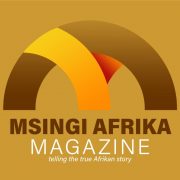 PIN IT
PIN ITPassionate about getting God's message concerning Afrika and the end times to the world, in order to heal, restore and rebirth Afrika to her true purpose and destiny in God.








